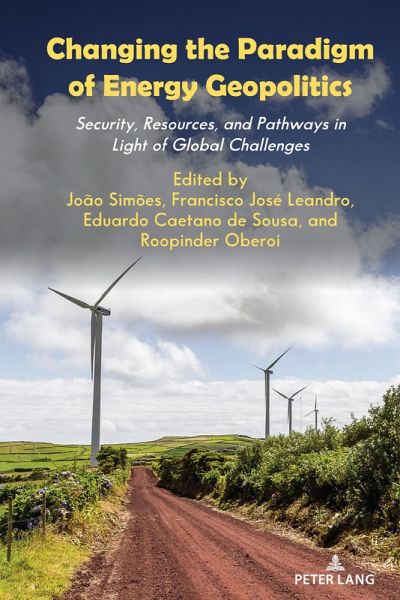
Changing the Paradigm of Energy Geopolitics (eBook, ePUB)
Security, Resources and Pathways in Light of Global Challenges
Versandkostenfrei!
Sofort per Download lieferbar
Statt: 102,95 €**
85,95 €
inkl. MwSt.
**Preis der gedruckten Ausgabe (Gebundenes Buch)
Alle Infos zum eBook verschenkenWeitere Ausgaben:

PAYBACK Punkte
43 °P sammeln!
This book offers an overarching view of the underlying challenges that the energy transitions pose to interstate energy relations. Geopolitics of energy currently epitomizes one of the principal sources for geopolitical vicissitudes affecting global energy landscapes. The ever-changing global energy architecture, global decarbonization plans and low-carbon technology developments are having deep geopolitical consequences. The extensive and rapid adjustment towards low-carbon energy is unsettling the conventional transnational energy structures, affecting economies and altering energy interstat...
This book offers an overarching view of the underlying challenges that the energy transitions pose to interstate energy relations. Geopolitics of energy currently epitomizes one of the principal sources for geopolitical vicissitudes affecting global energy landscapes. The ever-changing global energy architecture, global decarbonization plans and low-carbon technology developments are having deep geopolitical consequences. The extensive and rapid adjustment towards low-carbon energy is unsettling the conventional transnational energy structures, affecting economies and altering energy interstate relations. The geopolitics of the energy transitions is a field in the making, hence the existent academic literature is scarce and limited in scope. Current debates on decarbonization tend to mimic the geopolitics of oil and gas when discussing the stakeholders involved in the energy transitions. Besides, energy transitions tend to be studied at the national level overlooking the interactions at regional and global scales. Most research on the geopolitics of the energy transitions to date has mainly focused on the path to achieve the transitions to low carbon energy systems, and less on the global dynamics and the impacts of those transitions to inter-state relations and energy security. The fundamental question that needs dwelling is: How, and to what extent, will the multiple dimensions of the ongoing energy transitions affect existing fundamental geopolitical issues, and what new dynamics may result from the decarbonization process of the planet? The reasons to organize this publication are many, but among them stand one, which is functioning as the driving force behind this project: to contribute to a broader discussion on the ways in which energy transitions and geopolitics intersect.
Dieser Download kann aus rechtlichen Gründen nur mit Rechnungsadresse in A, D ausgeliefert werden.













